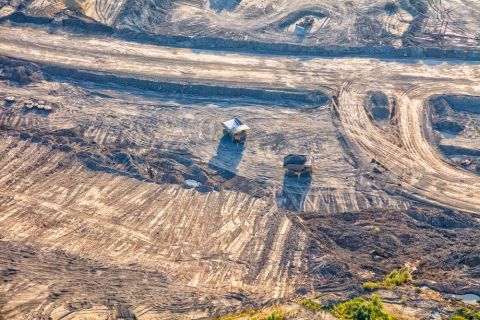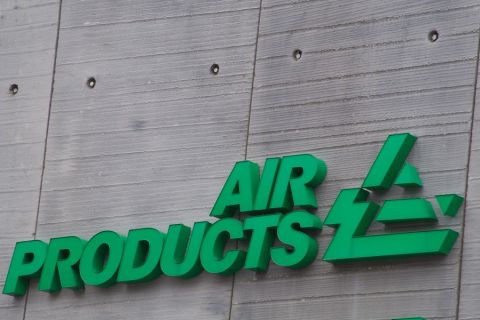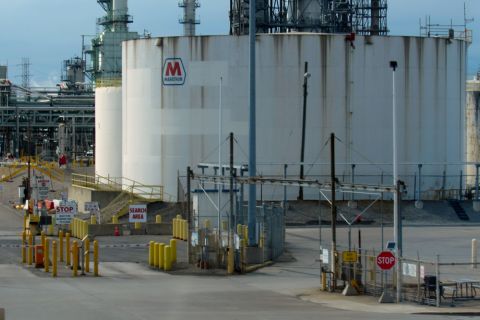
Moderator Constance Hunter of KPMG LLP (U.S.) leads panelists Robert Johnston (Eurasia Group), Annell Bay (Apache Corp.'s board) and Steve Suellentrop (Hunt Oil Co.) in a discussion of geopolitical issues at KPMG's 2017 Global Energy Conference. (Source: KPMG)
Learn more about Hart Energy Conferences
Get our latest conference schedules, updates and insights straight to your inbox.
HOUSTON—As “lower for longer” oil prices settle in, shockwaves in the form of peak oil demand will have the most impact on high-political risk, high-product cost countries, said Robert Johnston, CEO of the political risk firm Eurasia Group while speaking at the recent KPMG 2017 Global Energy Conference.
Peak oil demand might result from a supply gap that Johnston sees coming by 2022—a gap that will not be bridged, he said, by major producer Saudi Arabia’s effort to form a Saudi Aramco IPO “and their certain remastery of OPEC, at least temporarily.”
About 7 million barrels per day (MMbbl/d) currently comes from Saudi Arabia and the U.S., he said, noting that if Saudi Arabia reverses its production cuts next year, there would be 5 MMbbl of shale growth. Johnston said Saudi Arabia was likely to reverse those production cuts in 2018.
U.S. shale production will be the other factor in too-weak efforts to mend the gap, he said. Supply will still be needed from other markets in order to bridge that gap, he said. But other markets include “extreme countries” facing the most difficulty in the prolonged low price scenario.
Johnston named Nigeria and Venezuela as two examples of extreme countries—dependent on oil and facing “deep structural challenges that lead to a major political crisis.”
Related: Efforts To Make Aramco’s IPO Attractive To Investors Intensifies
Related: Nigeria’s Senate Passes Long-Awaited Oil Governance Bill
Related: Some Oil Companies In Venezuela Pull Expats As Unrest Escalates
He added that less-volatile countries that have not created infrastructure for energy sector investment will also suffer.
“I think we can agree that in the longer term, countries like Russia and Saudi Arabia also face deep structural challenges,” Johnston said “Let’s face it, a lot of us are not doing business in those markets. I think the places where we are doing business in Latin America and Canada also face some challenges.”
Supply from other markets must be pursued, he added, specifying that upstream projects in Latin America and Canada “that have some political stability” and technological innovation should be pursued.
Along with Johnston, panelists Annell Bay, a board member of Apache Corp. (NYSE: APA), and Steve Suellentrop, president of Hunt Oil Co., also discussed economic impacts of a renegotiated North American Free Trade Agreement.
Erin Pedigo can be reached at epedigo@hartenergy.com.
Recommended Reading
Private Equity: Seeking ‘Scottie Pippen’ Plays, If Not Another Michael Jordan
2024-01-25 - The Permian’s Tier 1 acreage opportunities for startup E&Ps are dwindling. Investors are beginning to look elsewhere.
Canadian Natural Resources Boosting Production in Oil Sands
2024-03-04 - Canadian Natural Resources will increase its quarterly dividend following record production volumes in the quarter.
Air Products Sees $15B Hydrogen, Energy Transition Project Backlog
2024-02-07 - Pennsylvania-headquartered Air Products has eight hydrogen projects underway and is targeting an IRR of more than 10%.
NGL Growth Leads Enterprise Product Partners to Strong Fourth Quarter
2024-02-02 - Enterprise Product Partners executives are still waiting to receive final federal approval to go ahead with the company’s Sea Port Terminal Project.
Marathon Petroleum Sets 2024 Capex at $1.25 Billion
2024-01-30 - Marathon Petroleum Corp. eyes standalone capex at $1.25 billion in 2024, down 10% compared to $1.4 billion in 2023 as it focuses on cost reduction and margin enhancement projects.





